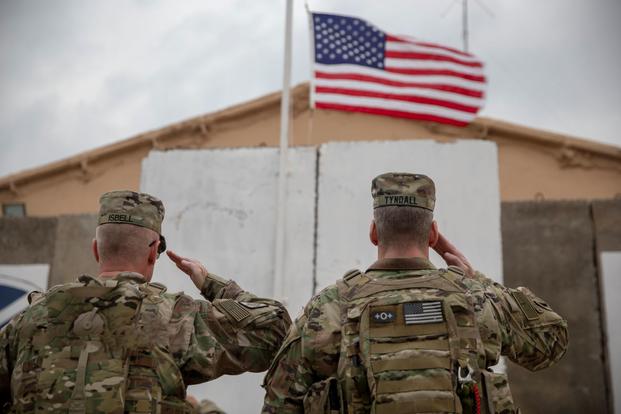Supreme Court won’t review male-only registration for the military draft
The Supreme Court on Monday declined to revive a lawsuit challenging the nation’s male-only draft registration policy as unconstitutional.

The American Civil Liberties Union, representing two men and a group called the National Coalition for Men, called the requirement that men, but not women, register with the military Selective Service System at age 18 “one of the last sex-based classifications in federal law.”
The Trump administration had defended the policy. Elizabeth B. Prelogar, President Biden’s acting solicitor general, advised the court not to take up the issue now because Congress is considering a national commission’s recommendation that women be included in draft registration.
“Any reconsideration of the constitutionality of the male-only registration requirement . . . would be premature at this time,” she wrote in a brief to the court.
The brief did not state whether Biden thinks women should be included, nor does it defend the current system, which requires only men ages 18 to 26 to submit their information should a military draft be needed again.
“Congress’s attention to the question may soon eliminate any need for the court to grapple with that constitutional question,” Prelogar wrote.
Three justices wrote a short opinion saying they agreed that Congress should take the lead, but indicated an interest in the issue
“The role of women in the military has changed dramatically” since the Supreme Court upheld the male-only draft in 1981, Justice Sonia Sotomayor wrote.
“It remains to be seen, of course, whether Congress will end gender-based registration under the Military Selective Service Act. But at least for now, the Court’s longstanding deference to Congress on matters of national defense and military affairs cautions against granting review while Congress actively weighs the issue,” Sotomayor wrote
She was joined by liberal Justice Stephen G. Breyer and conservative Justice Brett M. Kavanaugh.
A special commission set up by Congress to study the issue said last year that requiring women and men to register when they turn 18 would make it “possible to draw on the talent of a unified nation in a time of national emergency.”
Military leaders have said the same. But Congress has been reluctant. And the last time the Supreme Court considered the issue, it ruled that it was constitutional to require only men to register.
An Army trailblazer set her sights on a new target. The reaction highlights a deep rift.
In 1981, the court ruled 6 to 3 in Rostker v. Goldberg that because the primary function of the draft was to form combat-ready forces, Congress was justified in treating men and women differently. At the time, women were excluded from combat roles.
But the military removed its categorical ban on women in combat in 2013. All jobs became open to women two years later.
A district judge said that the changed conditions meant that the Supreme Court’s 1981 decision was no longer applicable. But a panel of the U.S. Court of Appeals for the 5th Circuit disagreed, saying that only the Supreme Court could overrule such a precedent.
Sotomayor noted that since that decision, “thousands of women have served with distinction in a wide range of combat roles, from operating military aircraft and naval vessels to participating in boots-on-the-ground infantry missions.”
She quoted the commission’s finding that male-only registration “sends a message to women not only that they are not vital to the defense of the country but also that they are not expected to participate in defending it.”
The opinion by the three justices also quoted Senate Armed Services Committee Chairman Jack Reed (D-R.I.) as saying it is his “hope” that a gender-neutral registration requirement will be “incorporated into the next national defense bill.”
Ria Tabacco Mar, director of the ACLU Women’s Rights Project, said: “We’re disappointed the Supreme Court allowed one of the last examples of overt sex discrimination in federal law to stand.”
She added in the statement that the current policy reflects the “outdated and sexist notion that women are less fit to serve in the military and that men are less able to stay home as caregivers in the event of an armed conflict.”
Her organization urged Congress to “update the law either by requiring everyone to register for the draft, regardless of their gender, or by not requiring anyone to register.”
The case is National Coalition for Men v. Selective Service System.


